Development and Evaluation of Hydrogen (Biohydrogen) Production and Purification Technology through Biomass Gasification
-
With the aim of realizing a hydrogen-enabled society, we conduct R&D activities on the production of hydrogen from biomass resources or waste materials by means of an indirect pyrolysis gasification process, in collaboration with the industry and academia. We are conducting experiments and simulations on key technologies such as thermal conversion characteristics (understanding of heat exchange and gaseous yields to name a few) and hydrogen refinery performance to ensure appropriate operation of the processes from the perspective of life cycle engineering.
-
-
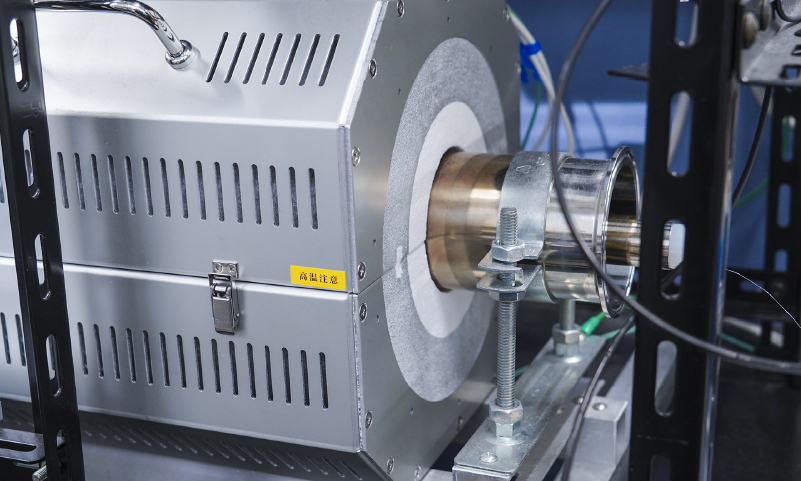 Thermal performance apparatus (measurement of thermal conductivity of heat carriers (alumina balls))
Thermal performance apparatus (measurement of thermal conductivity of heat carriers (alumina balls))
-
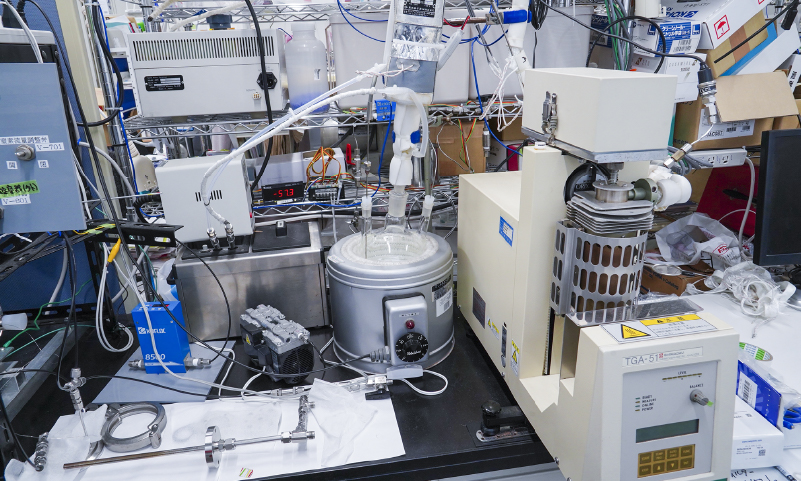 Thermogravimetric analyzer (measurement of syngas gasification rate)
Thermogravimetric analyzer (measurement of syngas gasification rate)
Performance Evaluation of Biomass Indirect Pyrolysis Gasification Combined SOFC System Based on Life Cycle Engineering
-
Solid oxide fuel cells (SOFCs) can generate electricity with high efficiency under high temperatures, and are extensively compatible with syngas obtained by indirect biomass pyrolysis gasification. However, syngas (fuel) containing impurities can lead to suboptimal performance and also the lifetime degradation of SOFCs. From the perspective of life cycle engineering, in this laboratory, we conduct performance tests using syngas (including biogas obtained from fermentation) and evaluate processes using a process simulator based on experimental results.
-
-
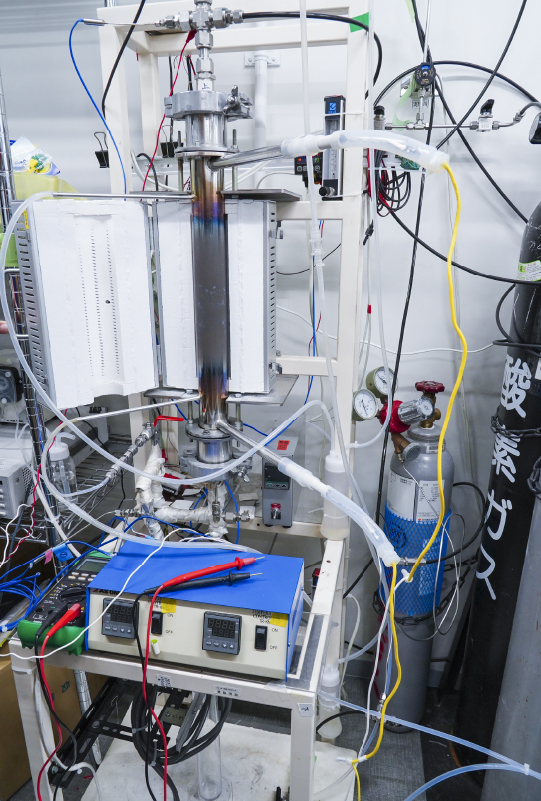 Test apparatus of solid oxide fuel cell (SOFC, coin cell)
Test apparatus of solid oxide fuel cell (SOFC, coin cell)
-
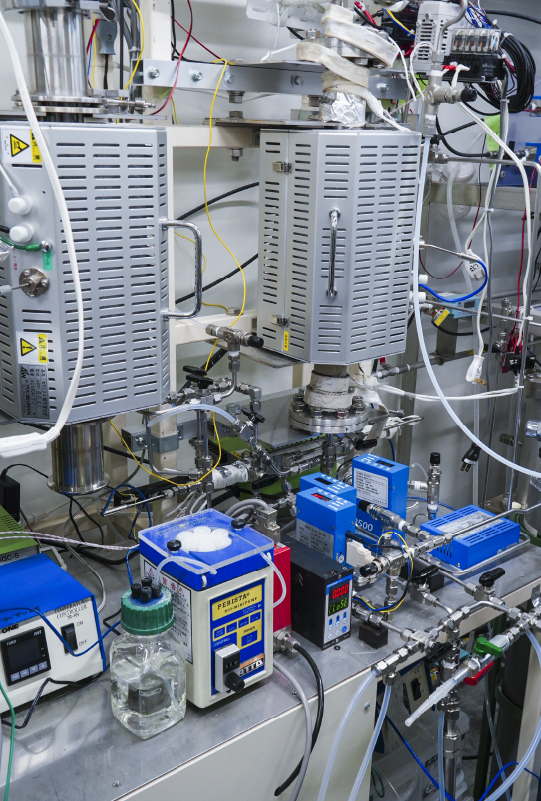 Experimental reactors with electrical heating
Experimental reactors with electrical heating
Quality Maintenance of Agricultural Products Using Natural Refrigerants(GF-08)
-
Hydrocarbon-based natural refrigerants are candidates for non-CFC-type refrigerants. In our laboratory, through industry–academia collaborations, the refrigeration and freezing capacities of hydrocarbon refrigerants have been evaluated based on thermodynamic properties. Experimental verification has also been performed to understand the heating–cooling capacities and characteristics of agricultural products (vegetables) in the context of refrigeration (changes in respiratory calorific value and nutritional value). Based on these results, we have evaluated the heating and cooling capacities of horticultural facilities, energy consumption, and nutritional changes associated with slow heating during refrigeration in storage facilities from a combined perspective of energy management and life cycle engineering.
-
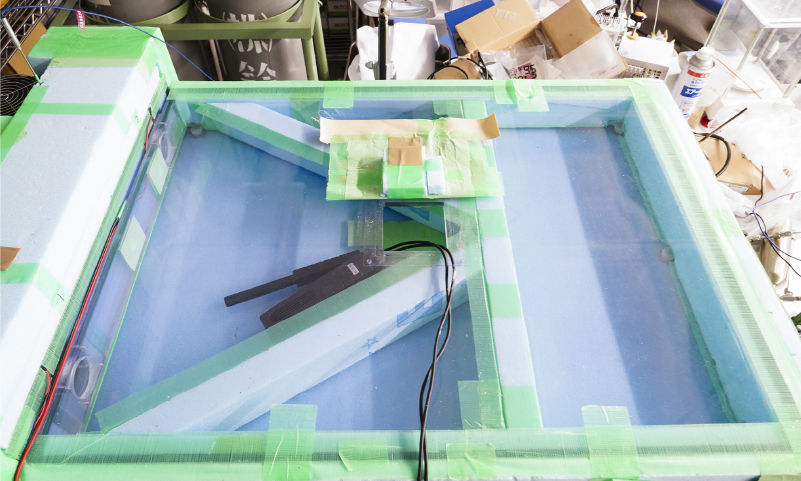 Device for measuring CO2 concentration in agricultural products based on the cooling effect
Device for measuring CO2 concentration in agricultural products based on the cooling effect
Others
-
- 〇LCA of fuel cell systems for product differentiation
We are developing life cycle assessment indicators for stationary fuel cells, which are being discussed in IEC-TC105 WG14.
-
〇Development of multiple indicators for environmental and nutritional components to reduce food loss
Through visualization, we are examining multiple indicators (including labeling) of environmental and nutritional properties of food products at different stages ranging from production, storage to cooking.
-
Main Available Software
Aspen Plus(Process simulator)
ANSYS Fluent(CFD modeling simulator)
SimaPro(LCA software)
Milca(LCA software))
GAMS(Optimal modeling simulator) etc.
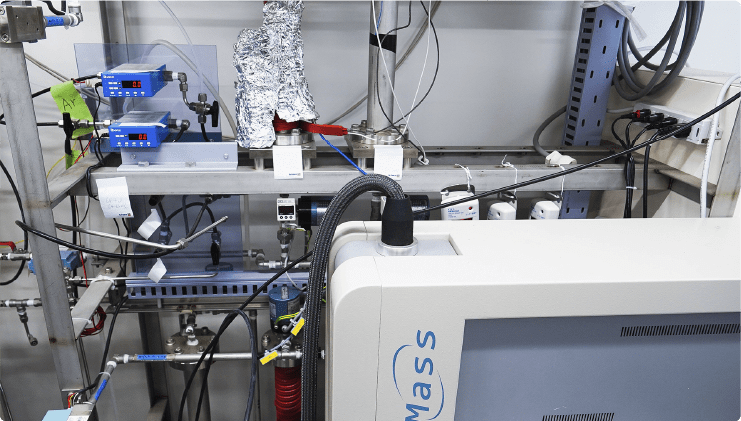
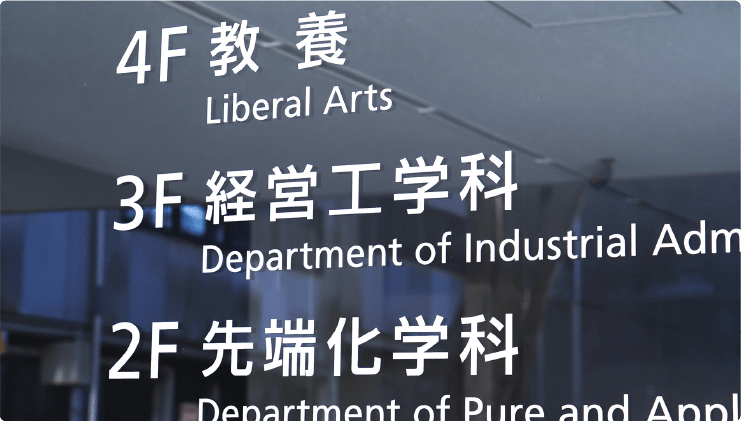
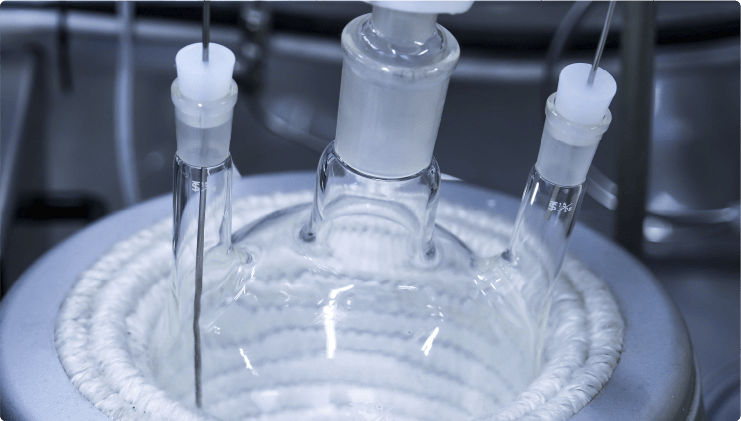
 Thermal performance apparatus (measurement of thermal conductivity of heat carriers (alumina balls))
Thermal performance apparatus (measurement of thermal conductivity of heat carriers (alumina balls))
 Thermogravimetric analyzer (measurement of syngas gasification rate)
Thermogravimetric analyzer (measurement of syngas gasification rate)
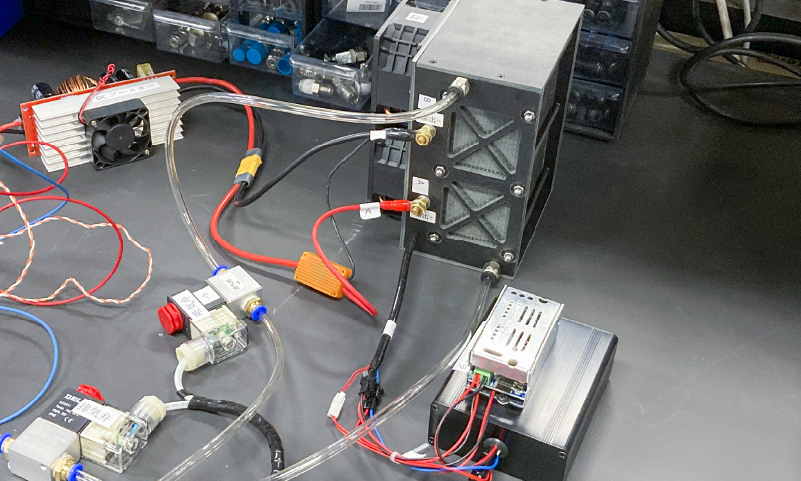 Polymer electrolyte fuel cell (PEFC, 450W)
Polymer electrolyte fuel cell (PEFC, 450W)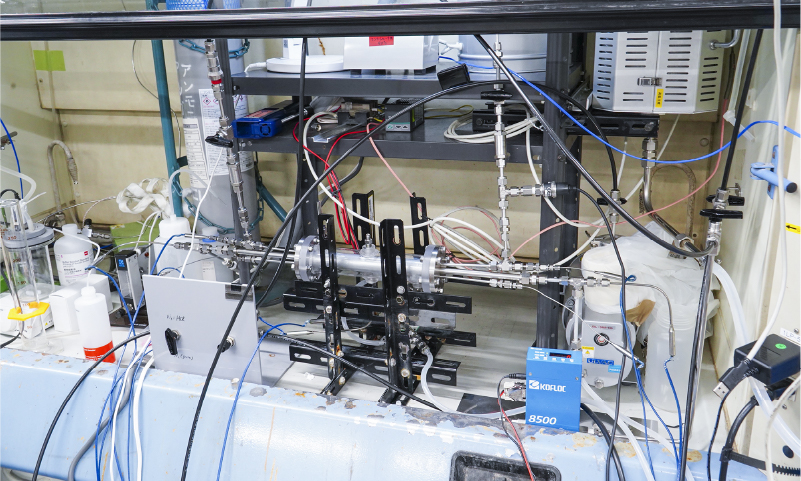 Adsorption/desorption performance apparatus (hydrogen storage alloy cartridge performance)
Adsorption/desorption performance apparatus (hydrogen storage alloy cartridge performance)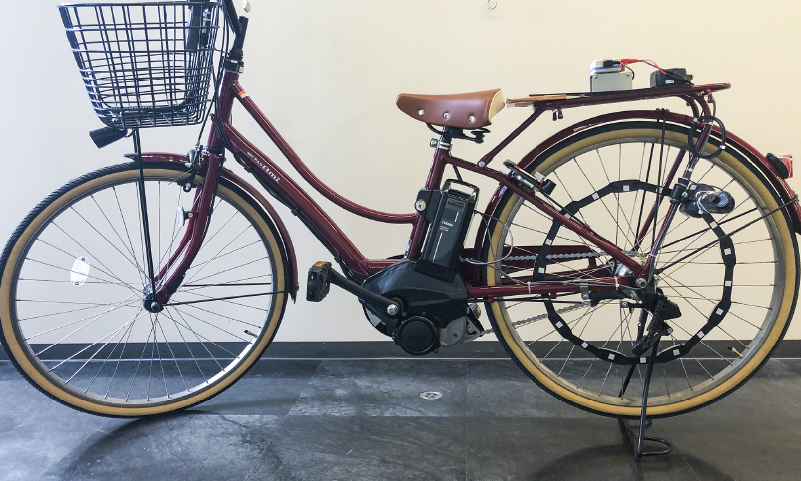 Performance evaluation of assisted bicycles
Performance evaluation of assisted bicycles  Test apparatus of solid oxide fuel cell (SOFC, coin cell)
Test apparatus of solid oxide fuel cell (SOFC, coin cell)
 Experimental reactors with electrical heating
Experimental reactors with electrical heating
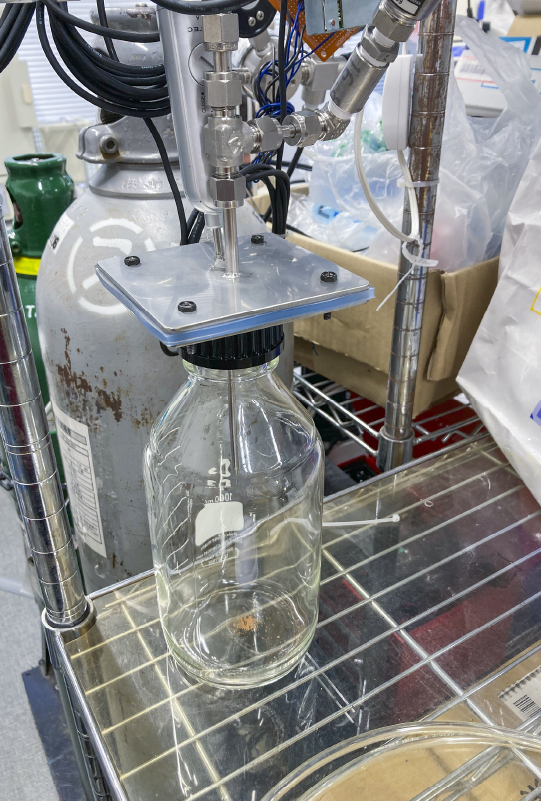 Static H2S adsorption test apparatus
Static H2S adsorption test apparatus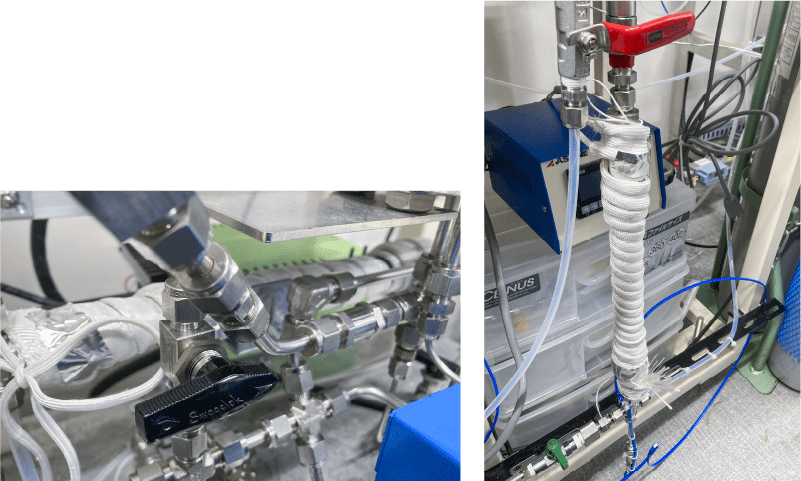 Tubular flow-type H2S adsorption test apparatus (left: horizontal, right: vertical)
Tubular flow-type H2S adsorption test apparatus (left: horizontal, right: vertical)
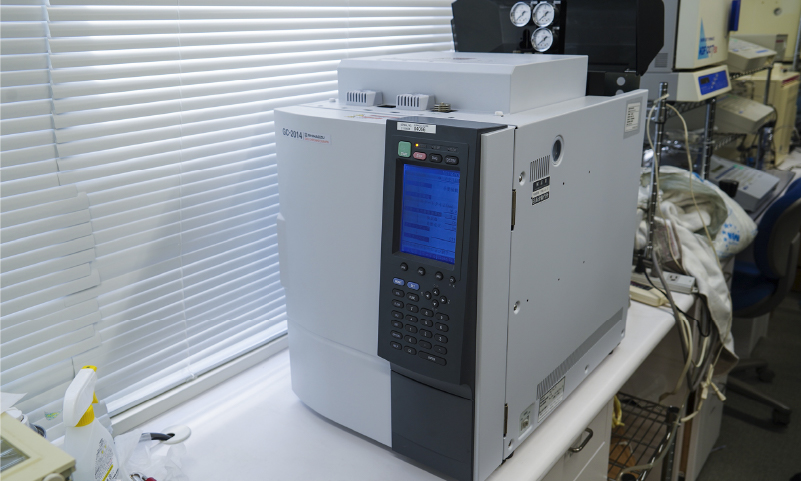 H2S analyzer (Gas chromatograph, GC2014)
H2S analyzer (Gas chromatograph, GC2014)
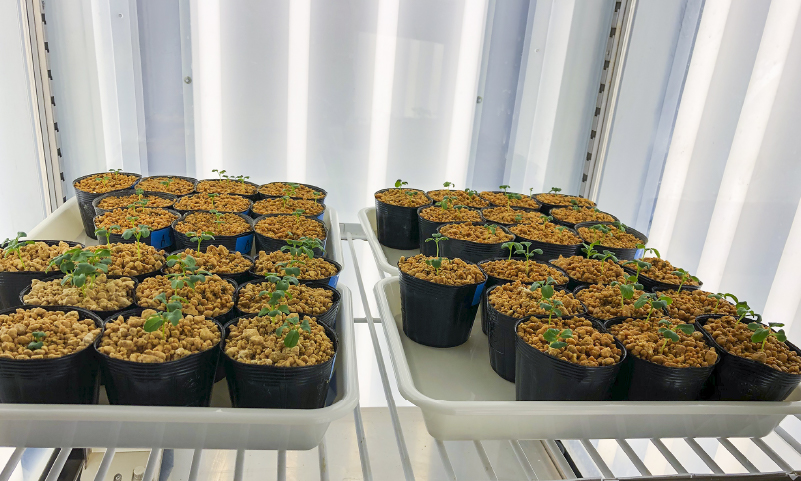 Cultivation test of spinach due to NH3-adsorbed Kanuma clay
Cultivation test of spinach due to NH3-adsorbed Kanuma clay
 Device for measuring CO2 concentration in agricultural products based on the cooling effect
Device for measuring CO2 concentration in agricultural products based on the cooling effect